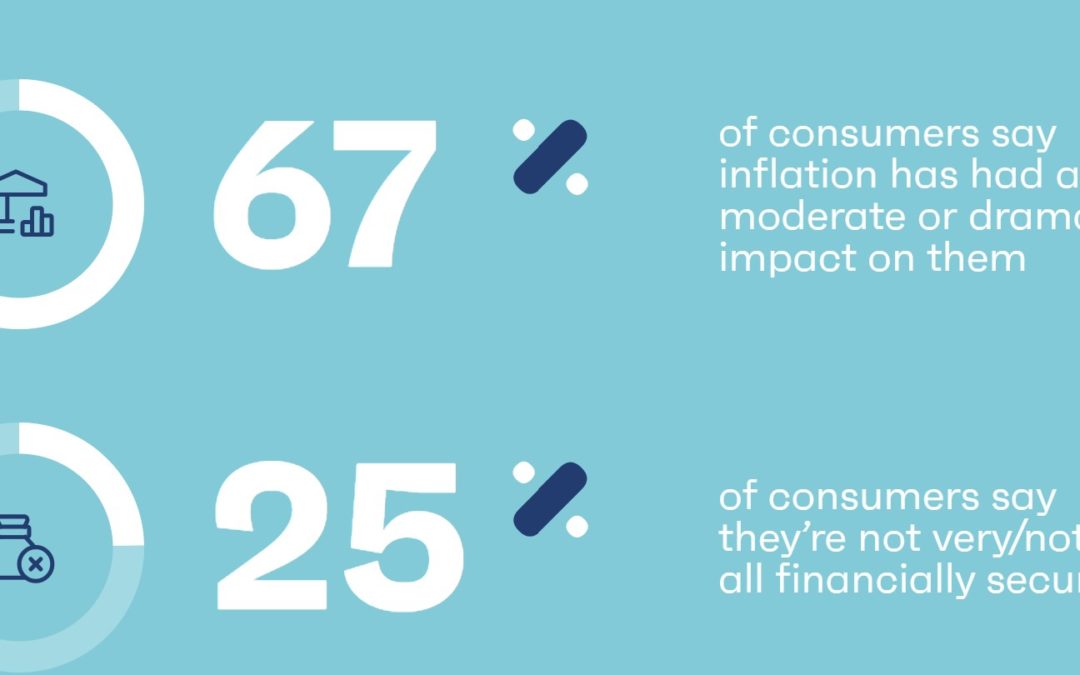As inflation rises, many consumers face a new dilemma: deciding where to cut back on spending. Making decisions is tough, as there’s a clear tension between wanting to go out and enjoy the post-pandemic world, and saving money by staying in.
Fears about the future of national economies are up for the first time since Q2 2020, when we felt the initial impact of Covid lockdowns. Personal finance concerns are also rising, with the biggest increases in Hong Kong, Israel, Japan, Sweden, and New Zealand. Of all markets tracked in our Zeitgeist data, UK consumers are the most likely (44%) to say they’re spending less compared to two years ago.
In the US, there’s a stark reverse trend to the carefree spending we saw back in November’s Connecting the dots report. Thriftiness is back in, while optimism, rebelliousness, and daringness are all down. But not everyone is feeling the pinch. In fact, some consumers are unlikely to experience this financial dilemma at all, and may well spend more.
If inflation wasn’t enough to contend with, fuel and energy shortages are wreaking havoc with consumer finances. This may explain the recent rise in eco-friendly intentions. 44% of consumers plan to walk or cycle more, and 38% plan to reuse more products. But just 10% plan on buying secondhand clothes. It’s more likely this shift is driven by the need to conserve cash, rather than the desire to save the planet, but it’s driving more sustainable changes nonetheless.
However, fewer consumers think they’ll spend less on groceries. Instead, they’re cutting back on certain treat purchases like alcohol, nights out, and vacations – so retail, travel, and hospitality businesses may feel the impact. The price of home entertainment is of less concern. With many consumers choosing to stay in to save money, these brands are set to benefit. But it’s worth noting not everyone can afford subscription services to begin with.
While consumers are price-conscious, the data reveals another side of the story. Whether achieved through brand marketing, or word of mouth reviews from friends and family, the perception of cost-effectiveness can be just as important for brands as price.
People want to buy from brands they believe offer longevity and value for money, meaning brand names don’t matter as much, and consumers are willing to switch to alternatives that offer greater perceived value – even if they aren’t actually any cheaper.
This may explain why more people are flocking to discount stores to buy ‘basic’ household goods over premium range products. Switching to cheaper broadband deals is also on the up, with sweeteners like freebies and flexible contracts luring consumers in.
Find out which purchases are holding up and which are on the chopping block.

